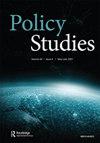Affording excellence: What does excellence funding do for researchers?
IF 2.3
4区 管理学
Q2 PUBLIC ADMINISTRATION
引用次数: 0
Abstract
The ambitions to fund excellent researchers and path-breaking research unite a whole family of funding instruments ranging from Centres of Excellence to individual grants. While instruments aimed at funding excellence share a number of commonalities, there are important subsidiary features which determine their overall efficacy. The paper uses a case study of the Swedish Distinguished Professor Grant (DPG) to investigate the role of subsidiary features in enabling conditions associated with path-breaking research. Interviews were conducted with DPG recipients, to develop an “affordance analysis” identifying how features of the instrument enabled certain researcher actions and opportunities. Results suggest that while long duration and large funds are central to research excellence, the way in which subsidiary features such as reporting, planning and content requirements are structured affect the level of risk-taking. In terms of policy, the paper offers specific and general suggestions for the design of excellence funding instruments.提供卓越:卓越资助对研究人员有什么作用?
资助优秀研究人员和开创性研究的雄心壮志将从卓越中心到个人资助的整个资助工具家族联合起来。虽然旨在资助卓越的工具有许多共同之处,但有一些重要的附属特征决定了它们的总体效力。本文使用瑞典杰出教授格兰特(DPG)的案例研究来调查辅助特征在与开创性研究相关的有利条件中的作用。与DPG接收者进行了访谈,以开发“功能分析”,确定该工具的特征如何使某些研究人员采取行动和获得机会。研究结果表明,虽然长时间和大资金是卓越研究的核心,但报告、计划和内容要求等附属特征的结构方式会影响风险承担水平。在政策方面,本文对优秀资助工具的设计提出了具体和一般性的建议。
本文章由计算机程序翻译,如有差异,请以英文原文为准。
求助全文
约1分钟内获得全文
求助全文
来源期刊

Policy Studies
PUBLIC ADMINISTRATION-
CiteScore
5.40
自引率
4.50%
发文量
34
期刊介绍:
These changes at the structural level of the global system have impacted upon the work of public organizations either directly or indirectly and have broadened the field of action in policy studies. It has five main areas of intellectual interest: 1.To broaden the lens of policy analysis through the publication of research which locates policy-making within a theoretical, historical or comparative perspective. 2.To widen the field of enquiry in policy analysis through the publication of research that examines policy issues in a British, comparative, international or global context. 3.To promote constructive debate on theoretical, methodological and empirical issues in policy analysis.
 求助内容:
求助内容: 应助结果提醒方式:
应助结果提醒方式:


